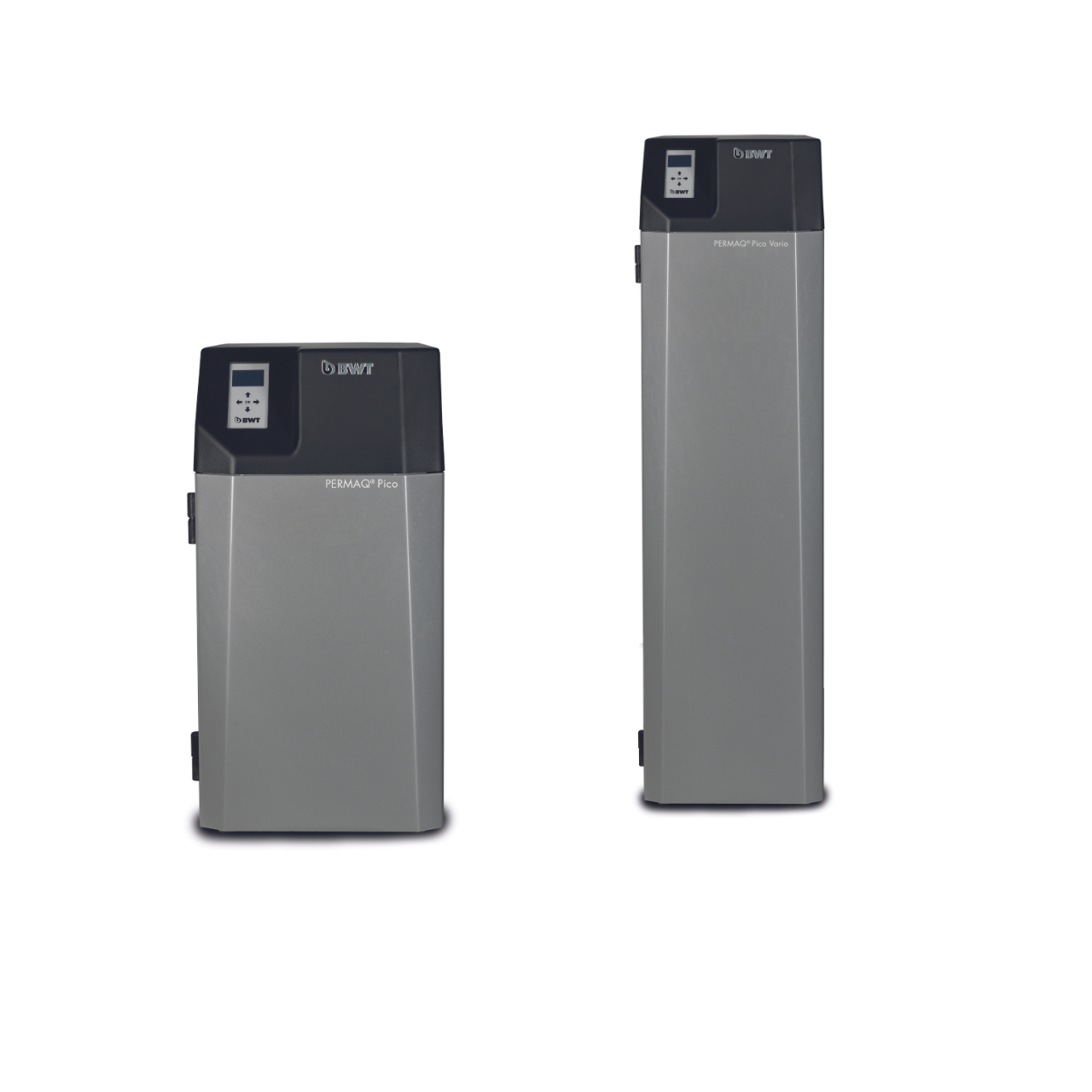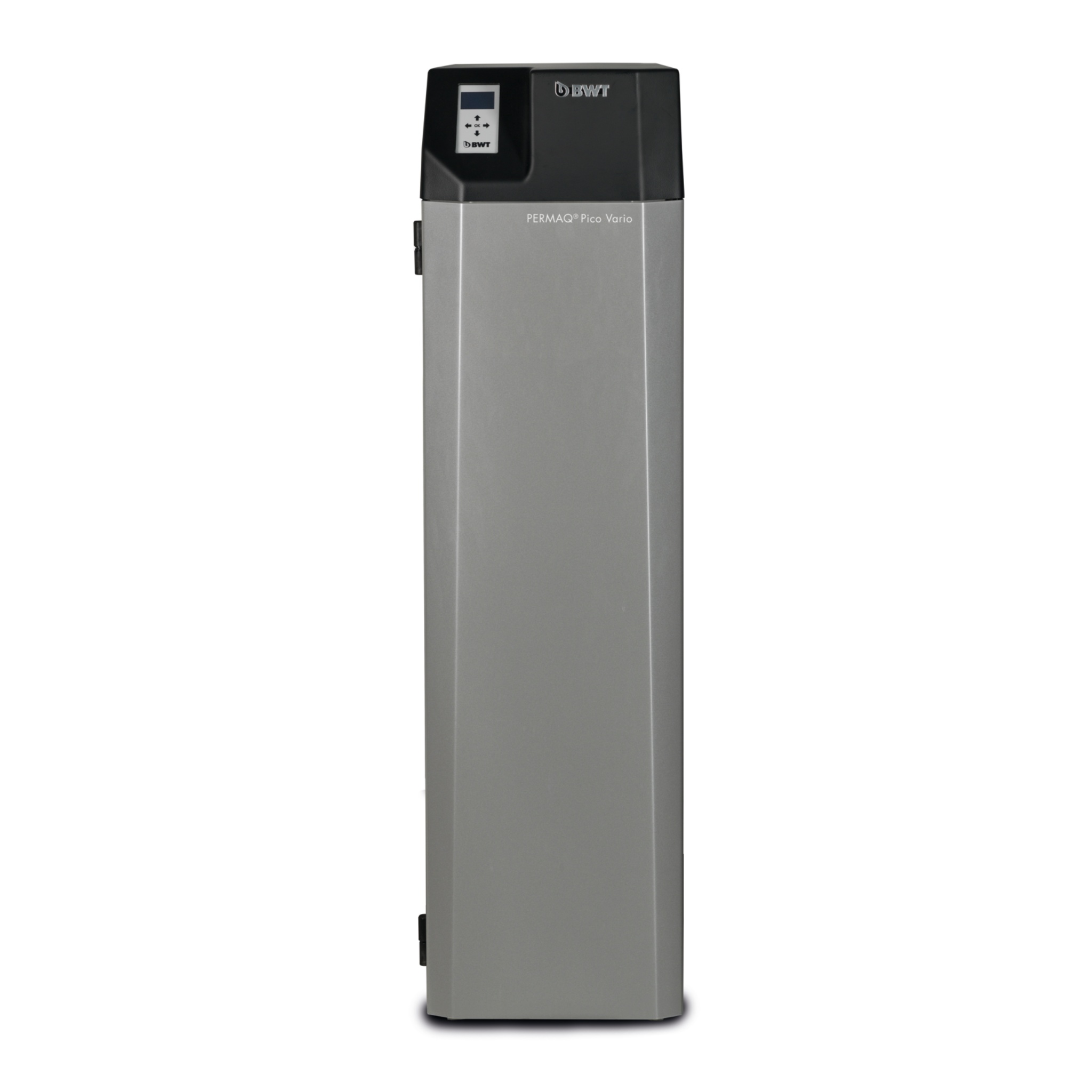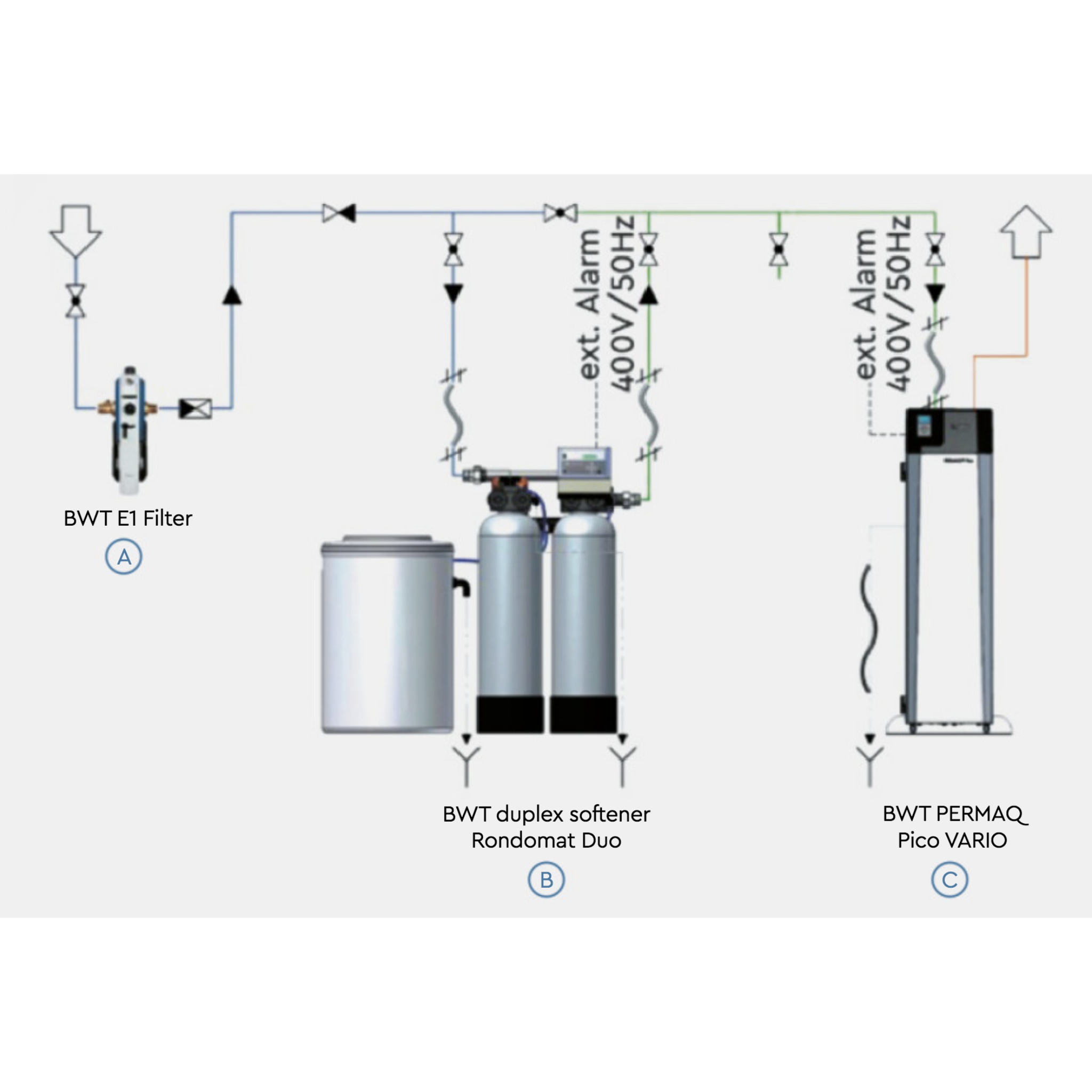
REVERSE OSMOSIS
ULTRAPURE WATER FOR LABORATORIES, AIR CONDITIONING TECHNOLOGY, HEALTH FACILITIES AND MORE
INTERESTING FACTS
Reverse osmosis (RO) is a method borrowed from nature. The technology has been tried-and-tested in water treatment systems all over the world for decades.
The natural osmosis process is reversed with reverse osmosis. This means water is pressed through a semipermeable membrane at high pressure. Pure water molecules can pass through this without problems due to their molecular size. Dissolved salts, such as nitrates, sulphates and chlorides together with heavy metals and even microorganisms, such as bacteria, are filtered out.
The feed water flow is separated under pressure into pure water (permeate) and the undesirable substances (concentrate). The so-called concentrate is discarded, while the permeate is supplied to the intended technical use.
Through the reverse osmosis, the salt content of the water is reduced by approx. 97–98 %, thus reducing the conductibility of 500 μS/cm in the untreated water to approx. 10μS/cm in the permeate.
VARIOUS USES
The advantages of the consistent high-purity water quality of reverse osmosis are finding ever new fields of use. The low-germ and low-pollutant water with the lowest conductibility ensures functional security and the best results for work and production processes in laboratory technology, in health facilities, dental practices and dental laboratories, in air conditioning technology and in building cleaning.
01 LABORATORY TECHNOLOGY
Through reverse osmosis, demineralised water can have many uses in a modern laboratory, e.g. as a solvent for analyses, for steam production for sterilisers or for use in laboratory washers.
02 AIR CONDITIONING TECHNOLOGY
Incrustations by hard water or biological films lead to blockages and inefficiency of the air conditioning equipment. This is why renowned manufacturers generally recommend the use of low-salt water (reverse osmosis).
03 HEALTH FACILITIES
In the pharmaceutical industry and in medical research, low-salt water is used for sensitive laboratory applications or in sterile preparation. In addition, cleaning and disinfection appliances are operated with it.
04 DENTAL LABORATORIES & PRACTISE
In dental laboratories, the main fields of use for reverse osmosis water are in the field of autoclaves, sterilisers, washers and other equipment needed for general laboratory purposes.
















